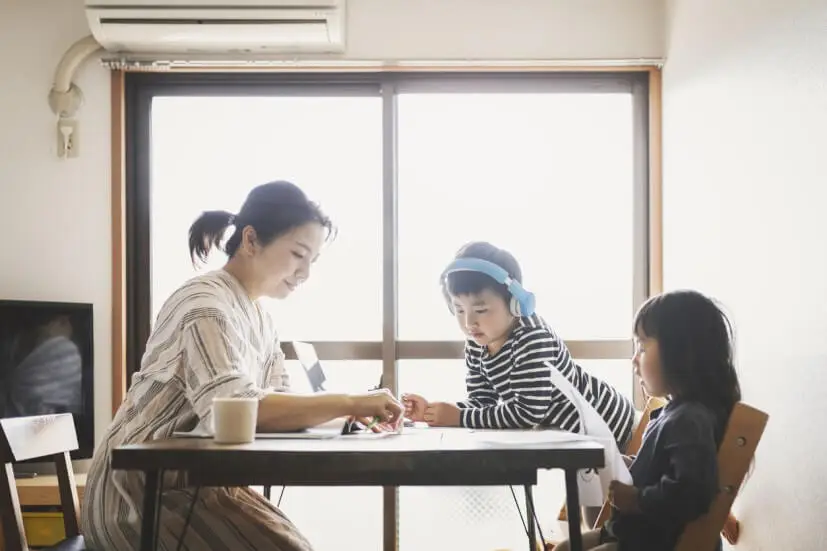3 Types of Self-Care to Make You a Happier Parent

In today's fast-paced world, juggling multiple roles and responsibilities is often a given, especially for parents who navigate work, personal life, and family commitments. Amidst this balancing act, embracing self-care becomes not just beneficial but essential.
For parents, this self-care journey is enriching, leading to reduced stress, improved mental clarity, and stronger relationships with children. By nurturing yourselves, you enhance your ability to provide better care and foster a more positive and harmonious home environment. Such self-care practices are the key to preventing burnout and ensuring you cherish and fully engage in the moments you share with your children.
Let’s look at the three critical aspects of self-care that can significantly contribute to happier parenting.
1. Physical Wellness
Your bodies bear the brunt of all your daily activities. From doing household chores and running errands to attending to your family’s needs, the hecticness of your lifestyle impacts your physical wellness, both internally and externally. This is especially true for mothers, who have gone through pregnancy and childbirth.
As such, giving your body proper care is important by maintaining a balanced diet, drinking the recommended 6 to 8 glasses of water per day, and clocking in sufficient rest of at least 7 hours of sleep every night. Incorporating these self-care practices into your daily routine can be simpler than you think.
For example, choosing nutritious snacks while grocery shopping or taking short breaks during the day for stretching or relaxation can make a significant difference. In addition, regular physical activity of approximately 150 minutes a week is recommended. This helps you feel good, increases your stamina, keeps your body agile, and prevents the onset of chronic diseases.
That said, keeping fit doesn't require a gym membership or structured yoga classes. Integrating physical activity into your routine can be simple and practical, like brisk walking for half an hour daily, opting for foot over transport for errands, participating in a single session of intense workout weekly, utilising moments like lunch breaks for a walk or doing light exercises while watching TV.
These easily adaptable tips ensure fitness fits seamlessly into your busy parenting schedule. An added bonus is to get your children to join you! This not only promotes active living in children but also fosters some quality family time.
2. Mental Wellness
In this fast-paced world, it's common for stress and anxiety levels to escalate due to various work, social, and personal responsibilities. For parents, balancing family needs while striving for the ideal of a 'perfect parent' can add to this stress. Concerns like managing young children’s eating habits, ensuring academic performance or worries about social influences are also challenges. Yet, parents must focus on their mental well-being.
Maintaining a healthy mental state positively influences interactions with your children and strengthens family relationships. Over time, a parent's robust mental health lays the groundwork for the mental wellness of their children. Therefore, taking time for yourself is essential in this nurturing journey.
Engaging in activities like listening to music, reading, or immersing yourself in nature can be incredibly soothing. Incorporating mindfulness exercises and relaxation techniques, such as practising brief guided meditations or deep breathing exercises, can also be particularly effective in calming the mind and reducing stress. These practices don't just alleviate immediate tension; they contribute to long-term mental resilience.
In addition to personal time, staying socially connected is vital. Sharing experiences and challenges with friends or joining parent support groups can provide invaluable insights and resources, and a sense of community. Equally important is setting healthy boundaries and asking for help when needed. Recognising your limits and seeking assistance from family, friends, or professionals is a crucial aspect of self-care. It helps manage stress effectively and ensures you don’t shoulder burdens alone. Establishing these boundaries and embracing support relieves immediate stress and contributes to sustained well-being and a more balanced parenting experience.

3. Financial Wellness
Lastly, financial wellness is an often neglected yet crucial aspect of life for parents. While it's natural to prioritise your children's needs, focusing on your personal savings and retirement plans is equally important. This balanced approach not only ensures your family's immediate well-being but also secures long-term financial stability.
It's wise to consider having an emergency family fund for unexpected situations and saving for your children’s higher education and your retirement as key parts of your financial strategy. Remember, a well-rounded financial plan contributes to your family's comfort and security, ensuring peace of mind in both the short and long term.
Regularly reviewing your financial plan is vital too. Setting reminders to check your finances periodically helps you stay proactive and make necessary adjustments. Using tools like Income’s insurance savings plans can be an effective strategy to meet your family's immediate needs and your personal goals. Additionally, consulting with a financial expert for a comprehensive financial needs analysis can provide customised, beneficial advice for you and your family.
Ultimately, having your finances well-organised is a form of self-care as it means less stress about the future and more freedom to enjoy the present — quality time with your family. It’s about striking a balance that supports both your family's immediate needs and your future aspirations.
Self-Care Ideas for Different Parenting Stages
As your children grow, parenting dynamics and self-care strategies evolve. For parents of young children, finding moments of relaxation can be as simple as utilising nap times for quick, refreshing breaks or engaging in playful activities that are enjoyable for both you and your child. This approach not only offers relaxation but also enhances bonding.
For those parenting teenagers, the focus shifts to maintaining open communication and carving out personal time for self-reflection and relaxation. This stage often requires balancing support for your teens' growing independence with your own needs for personal space and hobbies.
As empty nesters, the transition can be a time for rediscovery and renewal. It's an ideal phase to explore new interests or rekindle past hobbies set aside during the more active parenting years. This stage offers the opportunity to focus more on your personal growth and exploration, which can be both fulfilling and rejuvenating.
Tailoring your self-care routine to suit these different stages of parenting can significantly contribute to maintaining a balanced and fulfilling journey through parenthood, ensuring that as your children grow, you continue to grow and flourish as well.

Invest Time in Self-Care for a Happier Today and a Secure Future
Parenthood is a rewarding journey enriched with unique experiences and joys. Embracing self-care and ensuring financial stability are critical components of this journey, contributing significantly to your well-being and your family's happiness. By prioritising your physical, mental, and financial health, you set a strong foundation for a nurturing home environment. Such a positive and balanced approach to parenting allows you to give the best of yourself to your children. At the end of the day, a happy home atmosphere is the ideal setting for children to thrive and grow.
This content will be removed at a later sprint
This article is meant purely for informational purposes and does not constitute an offer, recommendation, solicitation or advise to buy or sell any product(s). It should not be relied upon as financial advice. The precise terms, conditions and exclusions of any Income Insurance products mentioned are specified in their respective policy contracts. Please seek independent financial advice before making any decision.
These policies are protected under the Policy Owners’ Protection Scheme which is administered by the Singapore Deposit Insurance Corporation (SDIC). Coverage for your policy is automatic and no further action is required from you. For more information on the types of benefits that are covered under the scheme as well as the limits of coverage, where applicable, please contact Income Insurance or visit the GIA/LIA or SDIC websites (www.gia.org.sg or www.lia.org.sg or www.sdic.org.sg).
This advertisement has not been reviewed by the Monetary Authority of Singapore.
Related Articles



